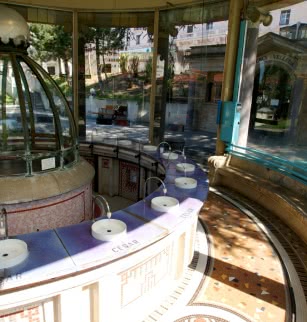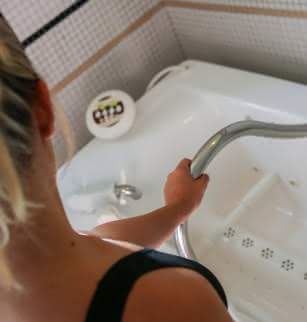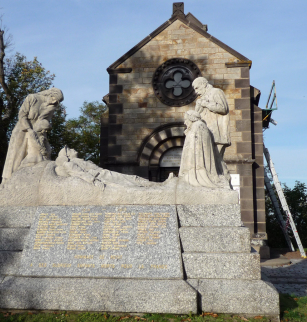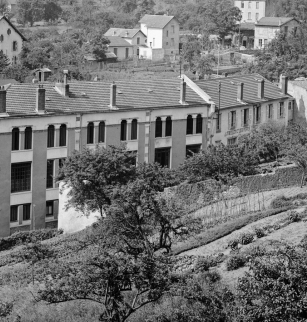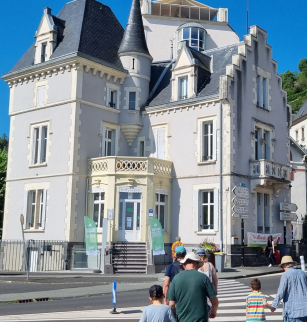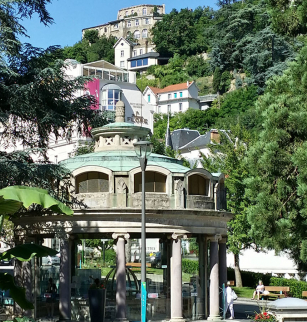Royat-Chamalières train station

The Royat-Chamalières train station originated during the spa boom. Its style is in keeping with typical rail station architecture of the Third Republic.
Until the Royat train station was built, spa visitors left the train at Clermont-Ferrand and finished their journey by horse and carriage, as Napoleon III when he visited Clermont-Ferrand and Royat in 1862.
With the growing success of spa resorts, it became necessary to open new railway lines. Three sections were built to serve these spas: Vichy from Saint-Germain-des-Fossés in 1862, Le Mont-Dore from de Laqueuille, added to the Clermont-Tulle line in 1899 and Châtel-Guyon via Riom in 1912.
Decided in 1880, Royat train station was inaugurated in 1886, after the construction in 1881 of the viaduct on the Tiretaine valley. Bathers then arrived from “all four corners of the world” to enjoy the benefits of a thermal cure.
The station was the work of Jules Martin, assisted by the engineer Colin. The style of the station was in keeping with typical rail station architecture of the Third Republic, both functional and picturesque. The façade featured a central building with two storeys and three bays. The first storey with wide segmental arch openings, preceded by an atrium window, looks onto the lobby where the ticket offices are located. The second storey houses the station manager’s quarters. The interplay of materials - brick and limestone - is evocative of the architecture under Louis XIII. The hip roof is laid with slate tiles. The train station has been on the historic monuments registry since 1994.
Additional information
Outdoor tour only.
Although the station is no longer open to passengers, the railway line is still in operation. Please take care when crossing the tracks.
The station is part of the discovery trail ‘The town of waters during the Belle Epoque’, included in the ‘De-ci de-là’ leaflet. This document is available free of charge from the Royat Tourist Information Office and can be downloaded from the bottom of this page.





